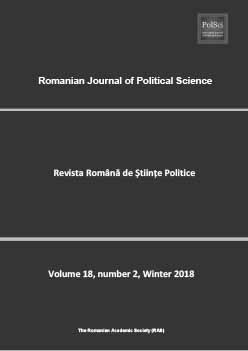EFFICIENCY AND EFFECTIVENESS IN SOCIAL ASSISTANCE USING CORPORATE SOCIAL RESPONSIBILITY AND THE ECONOMICS OF TAGGING
EFFICIENCY AND EFFECTIVENESS IN SOCIAL ASSISTANCE USING CORPORATE SOCIAL RESPONSIBILITY AND THE ECONOMICS OF TAGGING
Author(s): Cosmin Şerbănescu, Adrian VintilescuSubject(s): Financial Markets, Business Ethics, Socio-Economic Research
Published by: Societatea Academică Română (SAR)
Keywords: corporate social responsibility; efficiency and effectiveness of social assistance measures; data mining; capital income taxation; business ethics;
Summary/Abstract: The Mirrlees Fair tagging model described by Akerlof demonstrates that this concept leads to revenue redistribution efficiency, but implies difficulty in applying due to high administrative costs. Quantitative analysis of some redistribution process mechanisms which involves only indirect state intervention through corporate social responsibility (CSR) can be an effective optimal taxation leverage. In order to achieve this goal, the authors have described appropriate utility functions for actors involved in redistribution processes using CSR. The study considers the benefits for which companies could be open and interested in financing CSR programs that significantly minimize the social risks. The paper aims to quantify the impact of specific measures of corporate social responsibility in the economy and to determine the specific equilibrium conditions of this type of intervention. The study analyzes the demand and supply of a specific intervention area related to poverty programs and aggregates the results into a model that aims to determine the sensitivity of the CSR programs against certain parameters. The research also recommends the involvement of the private sector through charitable and philanthropic programs. The social and economic indicators have been analyzed using advanced statistical techniques (e.g. decision tree algorithm, regression, Monte Carlo analysis). The study generates a quantitative model for determining social risk based on community distinctive variables, to be acknowledged and used in carrying out specific CSR investments by capital decision makers.
Journal: Romanian Journal of Political Sciences
- Issue Year: 18/2018
- Issue No: 2
- Page Range: 91-118
- Page Count: 28
- Language: English
- Content File-PDF

